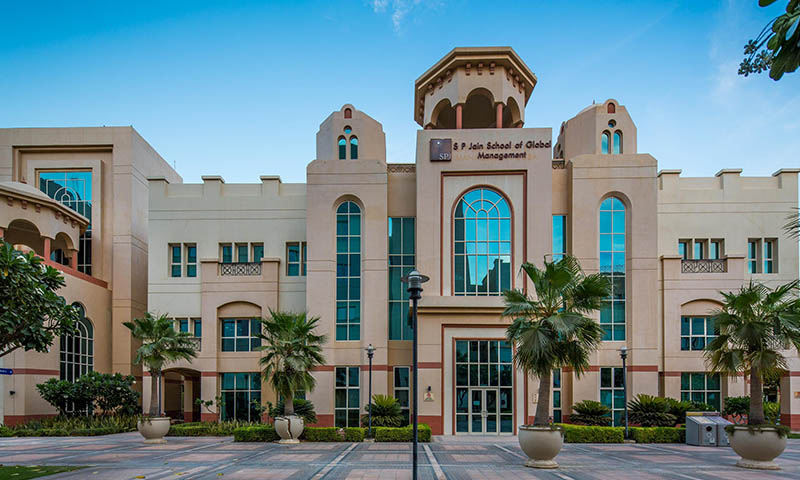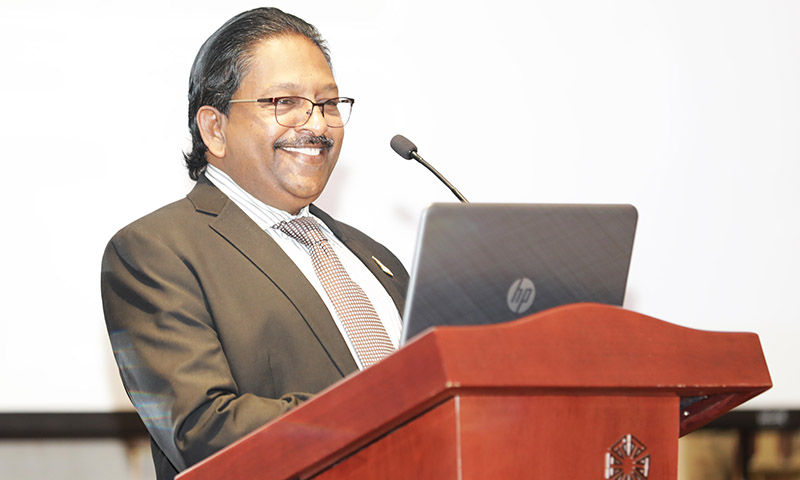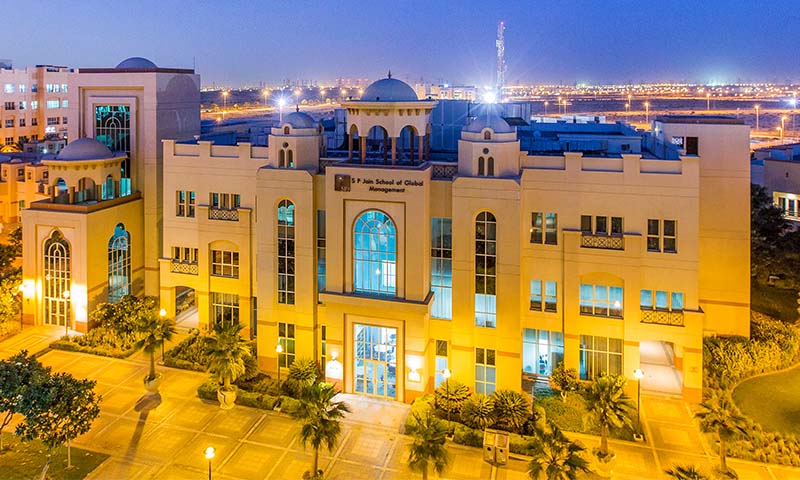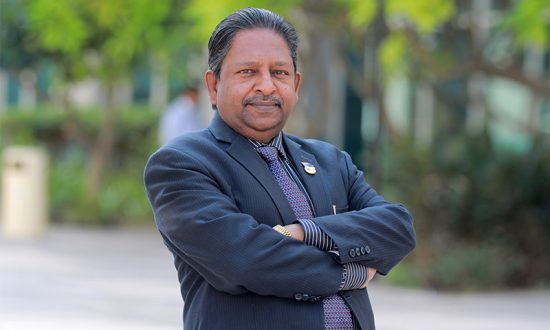Dr Christopher Abraham is the CEO & Head of Dubai Campus and Sr. Vice President – Institutional Development, Professor of Leadership, Design Thinking & Organizational Behavior, at SP Jain School of Global Management. He holds three postgraduate qualifications including Master of Business Administration from Regional Engineering College, India (1986), Masters in Human Resource Management from Bharathidasan University, India (1984) and Masters in Labour and Administrative Laws, Annamalai University, India (1984). He is a Certified Design Thinker from IDEO/Stanford and has over 32 years of experience in management consulting, marketing, and management education in India, Canada, Singapore, and the UAE. In an interaction with Higher Education Digest, Dr Christopher Abraham talks about efforts and investments of SP Jain School of Global Management, Dubai to create the best learning environment for students post-COVID.
How has been the impact of COVID-19 on the Middle East’s higher education sector so far? How will it affect the upcoming academic years?
COVID-19 has impacted the Middle East higher education sector just like other parts of the world. However, one major differentiator between this region and developing nations is that almost all the countries in the region were equipped technologically to address these challenges.
There has been an increase in the adoption of EdTech by higher education institutions across the world. How do you see this trend? What are efforts of SP Jain School of Global Management, Dubai in this regard?
The adaptation process of the “the new normal” of learning has been challenging; however, the learning curve has kicked in and there is broad acceptance for blended learning as an option to deliver learning content. The initial assimilation had been slow and challenging, but over time, most institutions here have adopted various aspects of EdTech, initially trying different options and finally choosing a few appropriate ones. This trend will continue in the near future, with more institutions accepting and adopting these new technologies.
S P Jain School of Global Management with a legacy of disruptive innovation had always been ahead of the curve. The school had invested in cutting edge online technology, aptly named ELO which stands for Engaged Learning Online, which was started many months before the pandemic. ELO is a sophisticated online learning system that replicates a live classroom down to its last detail. The ELO studio is set up with a robotic tracking camera for the faculty that allows them to move freely, maintain eye contact and moderate discussions in real-time. It facilitates one-on-one conversations between the professor and students, enables the faculty to evaluate each student’s level of engagement, respond to them individually and keep them motivated – just like they would do in a conventional classroom. So, in a sense, the school was prepared for an uncertain challenge like the current one.

Do you think the gaining popularity of online learning will affect the demand for traditional educational institutions? How can universities in the Middle East utilize both conventional and online education for the benefits of students?
With the onset of MOOCs (Massive Online Open Courseware) many years back, it was predicted that the trend would destroy brick and mortar institutions. The traditional institutions, however, resisted and online options became an expanding avenue to address the aspirations of other categories of students who otherwise would not have the opportunity to study. Interestingly, while MOOCs offered a plethora of learning choices, it did not have the unique charm of face to face human interactions offered by “old-style institutions.”
The COVID-19 pandemic has thrown formal educational systems into total disarray, opening new opportunities for other forms of learning delivery. Universities in the Middle East are now exploring how to capitalize on the emerging opportunities evolving from these circumstances.
A few years back, based on the recommendation of His Highness, The Ruler of Dubai, the first fully-integrated Smart University using E-learning, was launched under the name Hamdan Bin Mohammad Smart University in 2009. From then many other universities have opened online options as well. The current circumstance where there is a higher acceptance for online formats has allowed these universities to explore opportunities in various disciplines. Students can benefit from these offerings from the comfort of their homes at reasonable prices.
What are the investments SP Jain School of Global Management, Dubai making to create the best learning environment for students post-COVID?
As mentioned earlier, SP Jain had already invested in world-class technology much ahead of the pandemic. The ELO sessions are delivered through an advanced high-tech studio in our Dubai campus. SP Jain has the distinction of being one of only five institutions in the entire world to have this technology. Due to the surge in demand for our online programs, we are now building a second ELO studio to augment capacity. In addition, we have invested heavily on transforming conventional classrooms into ultra-modern smart classrooms with tablets embedded with sophisticated learning management systems. These in turn are connected to a mobile learning app where every student’s learning is monitored, and students are guided through continuous inputs to enhance their competencies in a particular subject. These technical enhancements combined with Socratic questioning methodologies and Gamified Simulations truly enhance the learning experience for the student.

In the coming years, what are the chances of the UAE to become one of the leading global education hubs? What would be the role of SP Jain School of Global Management, Dubai in this progress?
Post the 9/11 attacks, UAE has emerged as an extremely attractive higher education destination for thousands of aspirants from the MENA and South Asia regions. Today, the UAE is home to more than 50,000+ international students making it an emerging global education hub. There are dedicated Higher Education Communities like the Dubai International Academic City and The University City in Sharjah. In addition, Dubai holds an interesting world record by hosting the largest number of international branch campuses in a single city.
SP Jain has been in the UAE for the past 16 years and has been one of the pioneering institutions to establish an international branch campus starting with just two programs (one full time MBA and one Executive MBA). Today, we are the largest business school in the region offering a range of business programs at the undergraduate, postgraduate, executive and doctoral levels. From our Dubai campus, we run programs for students from 34 different countries, by offering our programs in both online and face to face platforms. SP Jain Dubai is also a leading provider of numerous executive education programs for corporates in the region.
Post-COVID, due to expected restrictions on immigration delay in the international admission process, can we expect more local students opting to stay back and study in UAE? What is your take on it?
Two interesting trends have emerged in the post-COVID-19 scenario in the UAE. Due to the vast array of choices for local students, and the fact that UAE has emerged as a safe and healthy destination, many local and expatriate parents and students are seriously considering staying back and studying in the UAE. Addressing this trend, SP Jain too has introduced flexible study options for students, wherein they can start their undergrad programs in Dubai (rather than in Singapore or Mumbai) and then continue the next three years in other destinations. A contrarian trend among international and Indian students is to choose Dubai because of the safety and health reasons mentioned and also because the Immigration Department in UAE has started issuing student visas.

What are the opportunities for Institutions in UAE post-COVID? How is SP Jain School of Global Management, Dubai planning to utilize these opportunities?
UAE being a regional hub and a leader in many sectors like aviation, tourism, hospitality, retail, healthcare, financial services and education, the post COVID scenario looks very bright. With the postponement of the EXPO 2020 to the next year, it has again opened a whole world of opportunities for various sectors, including education.
From our inception in 2004, SP Jain has played a crucial role in providing top talent for local organizations. While our students are engaged in live projects, volunteering, internships and placements, our faculty members are actively engaged in research, consulting and corporate education. SP Jain is a key strategic partner in the developmental initiatives of the UAE and will continue to play a crucial role in transforming the higher education and economic landscape in this region.




